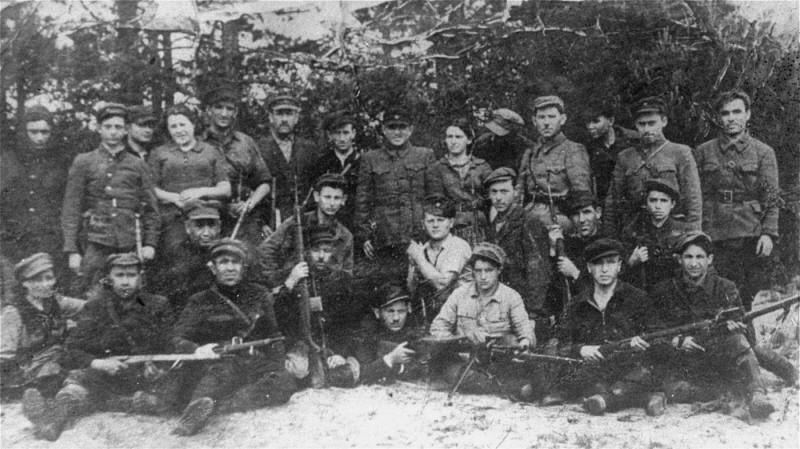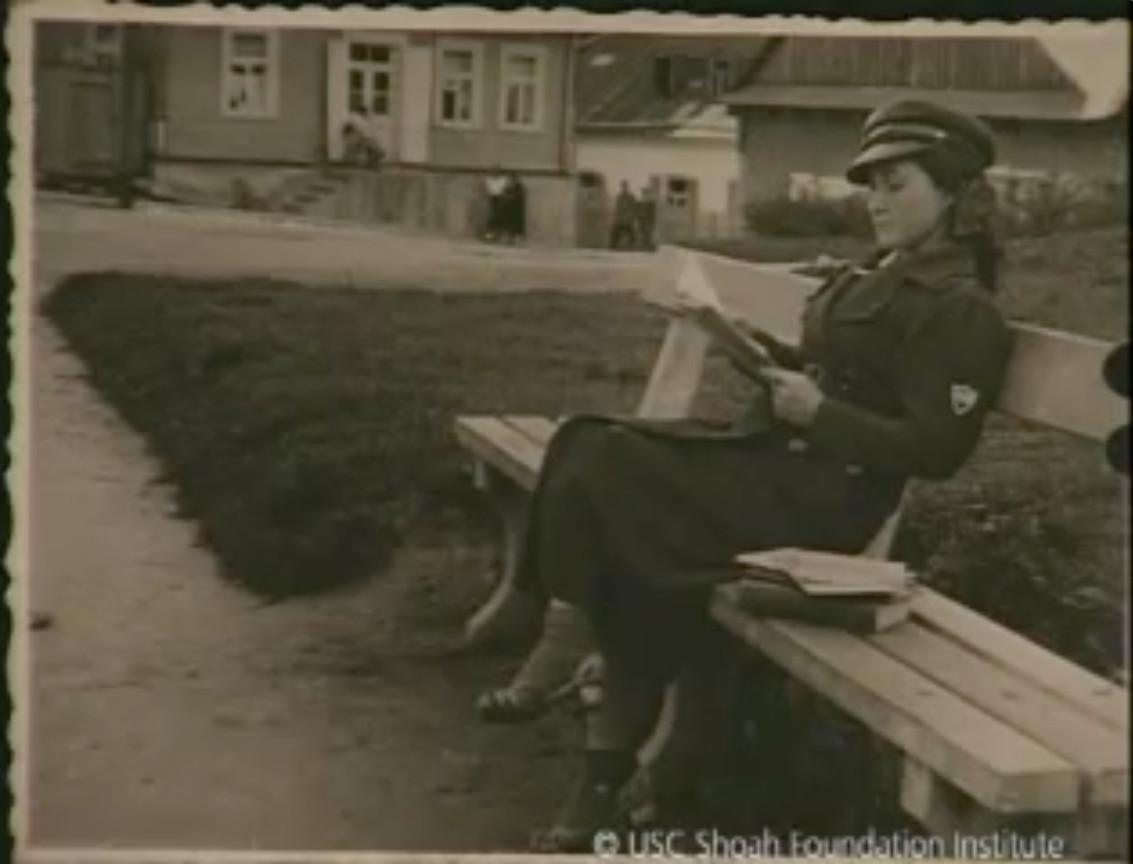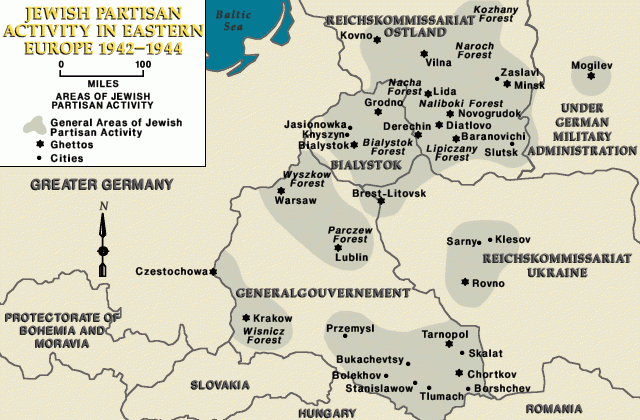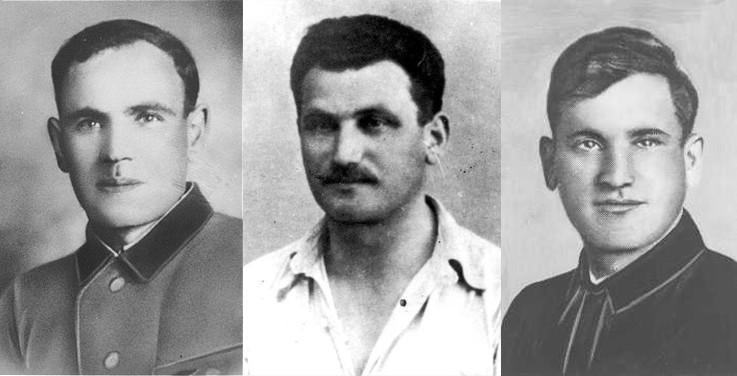Photo: Soviet partisans operating in the forests of Belarus
Photo of the Bielski family and friends in the forests of Belarus
The Bielski Partisans were a Jewish partisan detachment within the Soviet partisan movement in the Nazi occupied Belarus. They saved Jews from extermination and fought against the Nazi occupiers in the vicinity of Novogrudok, near Lida and in the Naliboki Forest during the occupation of the region by the Third Reich between the summers of 1942 and 1944.
The detachment was organised on the initiative of three members of the large Bielski family: the eldest Tuvia, 35 years old in 1941, Asael and Sigizmund (known as Zus). Their sister Taibe with her half year old daughter and Aron, the youngest brother aged 14 in 1941 where with them in the forest since June 1942. They spent two years in the forest altogether, including almost a year in the Naliboki Forest. Under their protection about 1.200 Jews survived the Holocaust. Unlike other detachments the “Bielski Brothers” accepted everyone: children, disabled people, the elderly and women.
Their story received worldwide attention through Edward Zwick’s movie Defiance (2008), with James Bond 007 actor Daniel Craig portraying the Jewish partisan commander Tuvia Bielski.
A trip back in time
Our video team met them in 2011 in their village, in the wooden house that Victor had built with his own hands at the age of 18 and then married Nina and welcomed her under his roof. The parents' house and the bread oven are still there 80 years later. One might think that nothing has changed...
Interview: Tamara Vershitskaya / English subtitles: Olga Balai
Victor Shimon and Nina Nikolaevna Shimon testimonies
Victor and Nina were 13 years old in 1943. They lived in Kamenka, a village near the Bielski partisan camp. As a teenager, Victor passed messages between the partisans and the Jewish ghetto, sometimes passing a weapon. Nina's mother baked bread for the partisans. As children, they were eyewitnesses to the daily life of the partisans. Their testimonies give us sometimes amusing details about the life of these men and women confronted with war, love, fear, heroism, betrayal, solidarity...
Jewish Survivor Aron Bell Testimony
Sonia Bielski (Boldo) , Zus Bielski wife, Testimony
Photo of Sonia Bielski (1939)
Invisible city: a Jerusalem in the forest?
The Bielski partisans are perhaps the most famous of the ‘Forest Jews’ of Belarus, Jews who engaged in active resistance to the Germans in the years between 1941 and 1944 from their hide-outs in the forest. When they escaped to ‘partisan country’ Jews had to adjust to an entirely new physical and social environment. Persecuted by one of the most technologically advanced armies in the world, and forced by circumstances to join the Soviet-led, communist, anti-religious partisan movement, the Bielski group faced numerous social and cultural dilemmas in establishing the living conditions that ensured their survival. The extreme cold of the Russian winter made circumstances extremely harsh, ‘living like animals’ according to one partisan, although in time life improved sufficiently for many in the Bielski detachment to believe that their final camp had acquired the status of a small town or shtetl.
Jewish Partisan activity in Eastern Europe
During WWII thousands of Jews, many of whom teenagers, escaped the Nazis to form or join organized resistance groups. These Jews are known as the Jewish partisans, and they joined hundreds of thousands of non-Jewish partisans fighting against the enemy throughout much of Europe.
Sometimes they fought alongside non-Jewish partisan units. In some units they had to hide their Jewish identity, even though they shared a common enemy, the Germans. Many partisan units were so antisemetic that fighters of the same unit could not openly reveal that they were Jews. Only two partisan units were purely Jewish, Bielski's and Zorin's. In the case of the Bielski’s, they were composed not merely of fighters, but of women, children, and the elderly.
3 of the Bielski brothers: Sigizmund (left) known as Zusia or Zus in June 1943, Asael (right) and Tuvia (center) commander of the Bielski partisans group.
In the Bielski’s group, they were composed not merely of fighters, but of women, children, and the elderly.
In the forest most of the partisans in the Bielski detachment got married. Photo: the Bielski brothers with their wifes.





